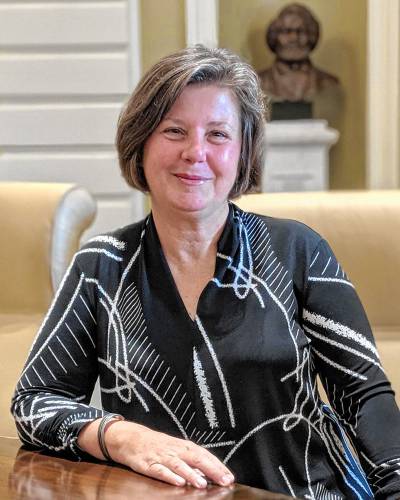Bills look to address ‘glaring omission’ preventing spouses from being paid caregivers
| Published: 10-23-2023 9:59 AM |
People could be paid to act as caregivers to spouses with disabilities under proposals promoted at a legislative hearing Monday to address the state’s shortage of personal care attendants.
A slew of family members — including children, grandparents, nieces and nephews, and ex-spouses — can already be reimbursed for providing home-based care and services to their loved ones through a MassHealth program, Sen. Jo Comerford told the Joint Committee on Children, Families and Persons with Disabilities.
Comerford said her bill (S 67), plus an accompanying proposal from Reps. Adam Scanlon and Norman Orrall (H 216), seeks to tackle a “glaring omission” for spouses by broadening the definition of a family member who’s eligible to be reimbursed.
“There are people on the waiting list, as you know, who can’t get the home care they need. Allowing qualified spouses to serve as family members who provide the care will actually expand the pool of caregivers, which I imagine then would reduce the waitlist and allow more people to get the care they need to stay at home,” Comerford said, noting that thousands of people last spring were waiting for at-home care.
The proposal also calls on the Executive Office of Health and Human Services to obtain a federal waiver to amend the spouse coverage provision, if it’s needed, to implement the potential law, Comerford said. More than two dozen states have implemented this reform, according to the Northampton Democrat.
A prior version of the bill was reportedly favorably out of committee last session, though the Joint Committee on Health Care Financing ultimately sent it to study.
Under current MassHealth regulations, Scanlon said spouses are forced to make an “impossible choice of letting their loved one go without care or make a significant sacrifice financially to work less in order to provide that care themselves.”
“We have, of course, already decided to pay for that care anyway by a different person, so let’s let spouses fill that gap,” Scanlon said at the hearing, adding that the new class of caregivers would provide continuous care to their loved ones amid steep turnover in the direct care workforce.
Article continues after...
Yesterday's Most Read Articles
 Proposal calls for a 70-80-room hotel near North Quabbin Commons in Athol
Proposal calls for a 70-80-room hotel near North Quabbin Commons in Athol
 Athol Fire Department receives new pumper truck
Athol Fire Department receives new pumper truck
 Black Diamond to hold 40th anniversary show in Winchendon
Black Diamond to hold 40th anniversary show in Winchendon
 Athol YMCA to open new community center
Athol YMCA to open new community center
 Cryptozoology exhibits featured at Education Earth Museum
Cryptozoology exhibits featured at Education Earth Museum
 Transfer station starting food scrap compost program
Transfer station starting food scrap compost program



 Orange Selectboard to review proposal to de-fund town libraries
Orange Selectboard to review proposal to de-fund town libraries Report urges full reexamination of regional transit authorities
Report urges full reexamination of regional transit authorities UMass chancellor defends protest crackdown, arrests
UMass chancellor defends protest crackdown, arrests Phillipston Town Election to decide next Selectboard member
Phillipston Town Election to decide next Selectboard member